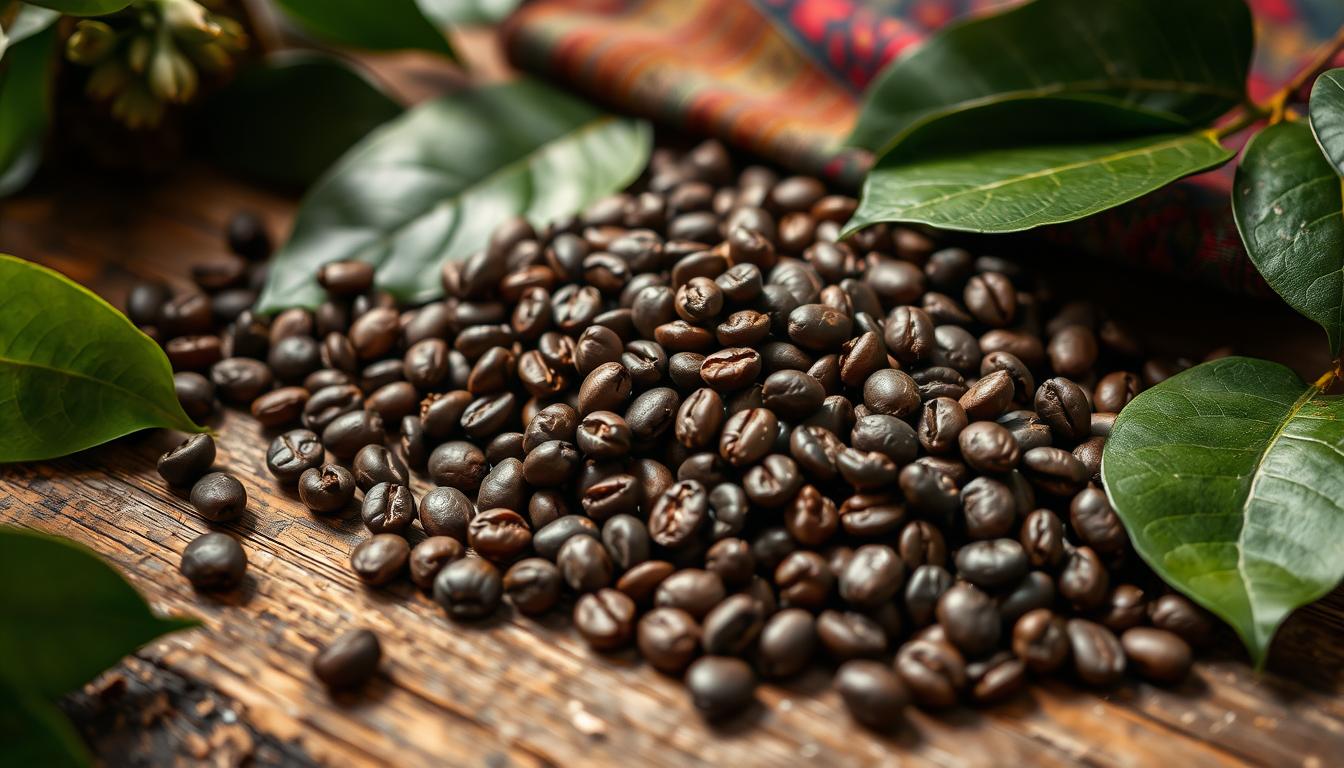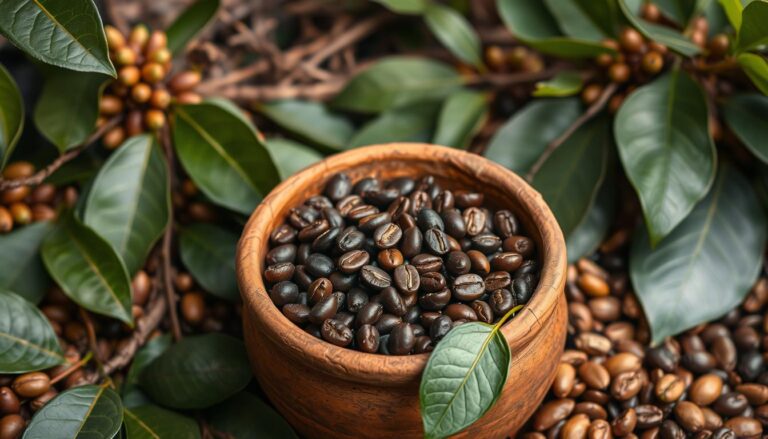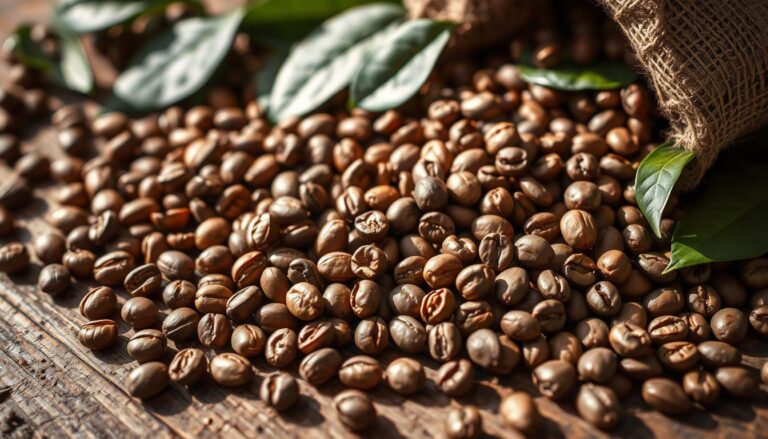Have you ever thought about the caffeine in your morning coffee? Ethiopian coffee is loved for its unique taste. But, knowing its caffeine levels is also key. Let’s explore the caffeine in Ethiopian coffee and what affects its strength.
Key Takeaways
- Ethiopian coffee is mainly Arabica, which has less caffeine than Robusta.
- The caffeine in Ethiopian coffee can change due to the type of bean, how it’s processed, and how it’s brewed.
- Ethiopian coffee is known for its rich, complex flavors, not just its caffeine.
- The high altitude in Ethiopia makes the coffee beans denser and of higher quality.
- Brewing Ethiopian coffee as filter coffee is a great way to enjoy its special taste.
Caffeine Levels in Coffee
Coffee is famous for its caffeine, but levels can change a lot. The amount of caffeine in coffee beans depends on several things. These include the coffee type, how it’s roasted, and how it’s brewed.
Factors That Affect Caffeine Content
An Arabica coffee bean usually has about 1.9 milligrams of caffeine. Robusta beans have 2.9 milligrams. But, these numbers can change based on the coffee type, where it’s from, and how it’s processed.
- The coffee bean variety: Arabica beans generally have lower caffeine levels compared to Robusta beans.
- Roast level: Darker roasts tend to have slightly less caffeine than lighter roasts.
- Brewing method: Espresso, French press, and percolated coffee typically have higher caffeine concentrations than drip or pour-over methods.
Comparisons to Other Coffee Varieties
Even in the same region, caffeine levels can differ. For example, Tanzanian Peaberry coffee has more caffeine (1.42%) than Yemen Mocha Mattari (1.01%). Other high-caffeine types include Guatemalan and Kona beans (1.20-1.32%). Zimbabwe and Ethiopian Harrar have slightly less (1.10-1.13%).
“The caffeine content of a 200ml cup of regular black drip coffee can range from 75-150 mg.”
It’s key to remember that caffeine in coffee can also change based on the blend and specific type. Knowing these factors helps you choose your coffee wisely.
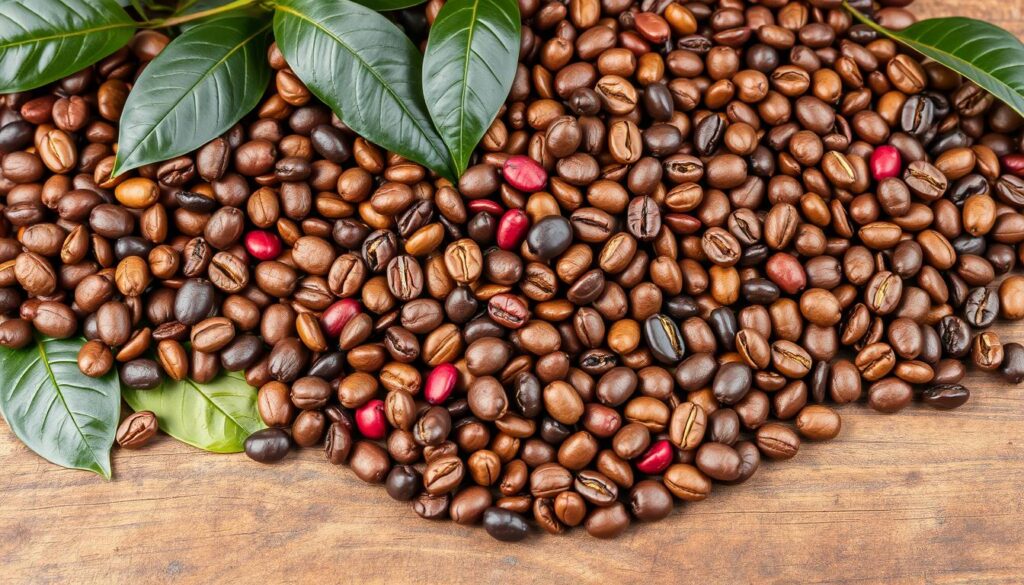
Specific Caffeine Content of Ethiopian Coffee
Ethiopian coffee’s caffeine content varies by type and how it’s made. Most Ethiopian coffee is Arabica, which has less caffeine than Robusta. For example, Ethiopian Harrar coffee has about 1.13% caffeine.
Arabica vs. Robusta in Ethiopian Coffee
Arabica coffee beans from Ethiopia are loved for their light flavors and floral scents. They have less caffeine than Robusta, but caffeine levels can change. This depends on the region, how they’re grown, and the processing methods.
Choosing Different Brew Methods
The way you brew Ethiopian coffee affects how much caffeine you get. Methods like V60, Chemex, or batch brewers bring out the coffee’s flavors well. Use water between 92-94°C and a medium-fine grind for best results.
An espresso shot (1-2 oz) has about 100 milligrams of caffeine. A 7 oz cup of drip coffee can have 115-175 milligrams, depending on the beans and brewing.
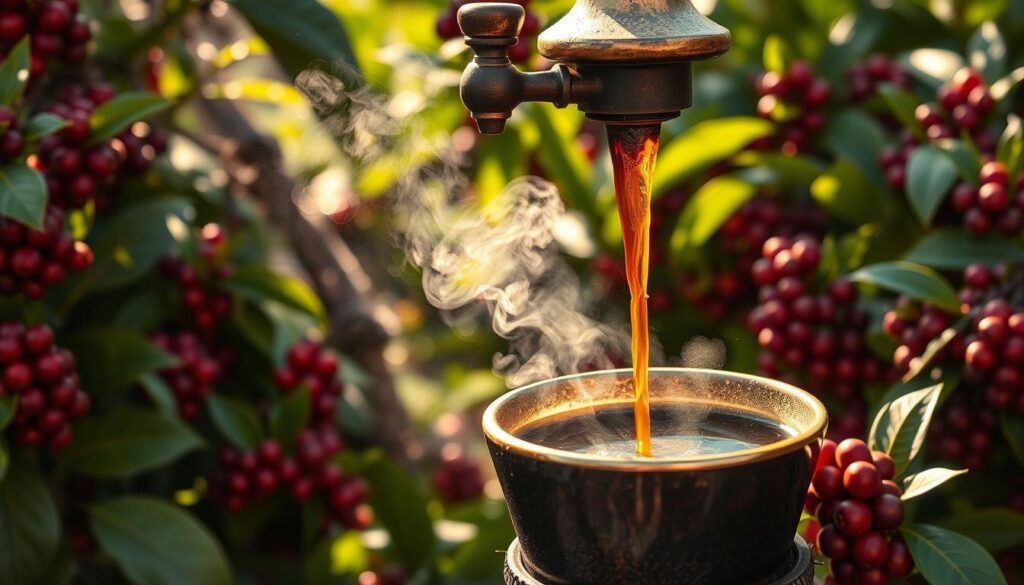
“Freshness is key for Ethiopian coffee; it tastes best within a month of roasting.”
Health Implications of Caffeine Intake
Knowing how much caffeine is in your Ethiopian coffee is key. Caffeine can make you feel more alert and help your brain work better. But too much can cause problems like feeling jittery, trouble sleeping, and a faster heart rate.
Recommended Daily Caffeine Limits
The FDA says healthy adults should not have more than 400 milligrams of caffeine a day. An 8-ounce cup of Ethiopian coffee usually has 100-200 milligrams of caffeine. This depends on how it’s made and the type of bean used. Remember, caffeine is in coffee, tea, and other drinks too.
Benefits and Risks of Consuming Caffeine
Drinking 2-3 cups of coffee a day might lower your suicide risk by 45%. Drinking 3-5 cups of coffee or more tea daily could also cut your risk of Alzheimer’s and Parkinson’s by 28-60%. Caffeine can also help you burn more calories, adding 79 calories burned per day with 300 mg of it.
But too much caffeine can cause headaches, feeling very tired, and trouble focusing. Keeping Ethiopian coffee beans in airtight containers, away from sunlight, keeps their flavor and caffeine good.
